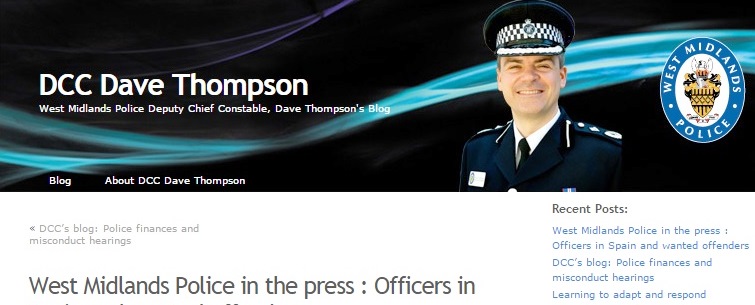Force U-turn on public interest over privacy in case of ten Most Wanted criminals
A senior police officer has admitted we got it wrong in refusing to identify a forces most wanted list of criminals including suspected murderers and rapists for fear it would breach their human rights.
A senior police officer has admitted we got it wrong in refusing to identify a forces most wanted list of criminals including suspected murderers and rapists for fear it would breach their human rights.
West Midlands Police (WMP) has been made to look silly for its stance over not releasing the names or pictures of ten suspects on the run for more than a decade, with one missing for almost 30 years.
As a Birmingham MP and a retired police officer heaped criticism on the force for protecting criminals wanted for serious crimes, Deputy Chief Constable Dave Thompson weighed in to the debate by agreeing to a partial U-turn on placing public interest before privacy duty.
Now WMP has released details of a man wanted for attempted murder 14 years ago while Mr Thompson plans to talk to senior investigating officers (SIOs) about whether renewed public appeals should go out on three or four of the other suspects.
He told Police Professional after posting an explanation on his force blog: We got this decision wrong and weve certainly been made to look a bit silly.
We dont want to end up looking like were hiding criminals when were not. We appeared like we were protecting people wanted for serious crimes.
The public interest in most of these cases outweighed any privacy duty.
Mr Thompson admitted the whole affair had become principally an FOI debate rather than operational one, which it should have been.
The Birmingham Mail newspaper submitted a Freedom of Information request to the force asking for the number of suspects classed as wanted.
A supplementary question requested the names, photographs and details of the ten suspects who had been on the run for the longest time.
West Midlands Police replied that a total of 1,452 of its suspects were marked as wanted on the Police National Computer, although none was identified to the newspaper.
And the force initially refused to name the ten suspects who had been missing the longest, citing exemption under Section 40(2) of the Freedom of Information Act a section which covers the release of information relating to personal data.
Of the ten suspects, four are wanted for murders dating back to 2002. Another four are wanted for attempted murders between 2001 and 2005, while one is being sought over an alleged immigration offence from 2004.
The final suspect, an 81-year-old man, was reported to police in 2010 over a rape allegation dating back to the mid-1980s. The force has admitted that the man, who is living in Thailand, was no longer wanted after the Crown Prosecution Service ruled no further action should be taken.
Khalid Mahmood, Labour MP for Perry Barr in Birmingham, told the Birmingham Mail: “Instead of focusing on protecting the victims and communities this has become about protecting the criminals. The force should be doing all it can, with the help of the public to track down these people.
“They have been wanted for some of the most serious crimes for up to 30 years and the victims deserve justice.
Ray Egan, 75, who served on the West Midlands force from 1967 to 1993, said: This isnt the police force that I joined. To look at what is happening, its enough to make you jump off the cliffs of Dover.
These criminals could still be committing crimes like murder and rape. I dont know how they think they will catch them if no-one knows who they are.
Since the newspapers investigation was published the force has now identified Luke Anderson, who is wanted in connection with attempted murder, as one of the ten.
The then 19-year-old is being sought by officers in connection with the near fatal attack on Dr Khurshid Naqvi outside the front door of the Falcon Hotel, in Manor Road, Coventry, on March 9, 2001.
Mr Thompson added: West Midlands Police consistently and pro-actively release individuals as being wanted across our website and social media sites.
The public are our eyes and ears and sharing people as wanted is an extremely successful way of tracking down those who


